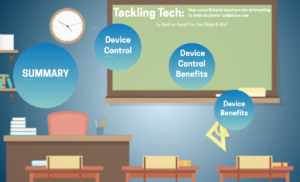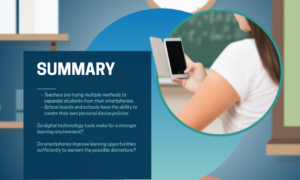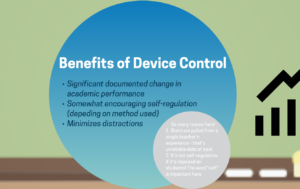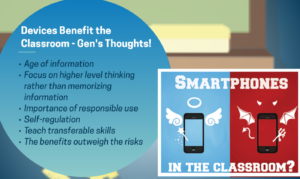In creating this multimedia reflection, I used Prezi for the first time. Maybe I was far behind the times, but I had actually never heard of it until this class began. It was an interesting experience. One that was full of frustration when I found that the template was very confining. Perhaps this w as only the case because I was so unfamiliar with the platform. One frustration is that my Prezi presentation cannot be embedded live into this blog. To circumvent this, I have included the link below to the presentation, and have included select screenshots throughout to provide a glimpse into the presentation.
as only the case because I was so unfamiliar with the platform. One frustration is that my Prezi presentation cannot be embedded live into this blog. To circumvent this, I have included the link below to the presentation, and have included select screenshots throughout to provide a glimpse into the presentation.
Click here to view the complete presentation!
 Nadine Yousif raises a number of possible solutions to the challenge cellphones pose in classrooms in the article “Tackling tech: How some Ontario teachers are attempting to limit students’ cellphone use”. Ultimately, many teachers and politicians believe that the distractions that cell phones create in the classroom
Nadine Yousif raises a number of possible solutions to the challenge cellphones pose in classrooms in the article “Tackling tech: How some Ontario teachers are attempting to limit students’ cellphone use”. Ultimately, many teachers and politicians believe that the distractions that cell phones create in the classroom  outweigh the many ways that handheld devices can be used to enhance learning experiences. This topic is not new to education, the same one was occurring 10 years ago when I was in high school. Frankly, the same techniques were being discussed: banning devices, sealed containers, etc. Everything except teaching students the self-regulation skills that would transfer to their daily lives.
outweigh the many ways that handheld devices can be used to enhance learning experiences. This topic is not new to education, the same one was occurring 10 years ago when I was in high school. Frankly, the same techniques were being discussed: banning devices, sealed containers, etc. Everything except teaching students the self-regulation skills that would transfer to their daily lives.
 While an increased academic performance due to digital abstinence (a term used by Marcel O’Gorman in the article) is certainly admirable, I am left wondering how students will benefit from these practices long term. Once they leave high school and are in a university, college, or workplace environment, there will not be an authority figure making them put their device in a sealed pouch. Rather they will be forced to self-regulate, a skill they will not have developed during their adolescent years.
While an increased academic performance due to digital abstinence (a term used by Marcel O’Gorman in the article) is certainly admirable, I am left wondering how students will benefit from these practices long term. Once they leave high school and are in a university, college, or workplace environment, there will not be an authority figure making them put their device in a sealed pouch. Rather they will be forced to self-regulate, a skill they will not have developed during their adolescent years.
Prior to reading this article, I was not aware that these solutions were still such hot topics in education. I thought we had moved past the point of digital abstinence (particularly given that there are entire schools that utilize Chromebooks in all classes). The new Ontario government pushing old ideas as if they are revolutionary is no surprise. They would also like us to go back to outdated and disproven teaching practices in key subjects. We know that today we are preparing students for a future that is beyond our imaginations. We don’t know what the world will look like in ten years, what skills the students will need, or how we can get them there. So we need to empower them to develop these skills independently. Limiting their access to technology will only do them a disservice in an increasingly digital world. This article is very one-sided. It completely neglects to review the positive aspects of technology in the classroom. Without a comprehensive review of the benefits and the drawbacks, we do ourselves and our students a disservice.
Given that the conversation has not changed in a decade, I believe that it is time for politicians to support teachers and empower them to embraceersonal handheld devices in classes. There is an opportunity to help students learn valuable life skills that are directly transferable to their current lives and to their future careers. As a student, I wish my teachers had taught us how to use our devices responsibly, to help us use them to supplement our learning and to enhance our environment. Device bans represent a group of people who are fearful of technology and the rate at which it develops. The time has come to embrace technology in our classrooms and allow students to develop their digital literacy skills in ways that we cannot fathom.
